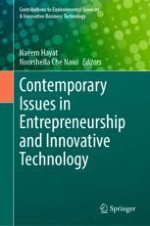2024 | Buch
Contemporary Issues in Entrepreneurship and Innovative Technology
herausgegeben von: Naeem Hayat, Noorshella Che Nawi
Verlag: Springer Nature Switzerland
Buchreihe : Contributions to Environmental Sciences & Innovative Business Technology
